Help in Easy Read format
Easy to read online safety information and advice with images to support the key messages.
On this page:
- Being safe online booklet[https://www.esafety.gov.au/communities/people-with-disability/easy-read#being-safe-online-booklet]
- Cyberbullying booklet for people under 18[https://www.esafety.gov.au/communities/people-with-disability/easy-read#cyberbullying-booklet-for-people-under-18]
- Adult cyber abuse booklet and poster for people 18 and older[https://www.esafety.gov.au/communities/people-with-disability/easy-read#adult-cyber-abuse-booklet-and-poster-for-people-18-and-older]
- Image-based abuse booklet and poster[https://www.esafety.gov.au/communities/people-with-disability/easy-read#image-based-abuse-booklet-and-poster]
- What you can do about abuse through technology[https://www.esafety.gov.au/communities/people-with-disability/easy-read#what-you-can-do-about-abuse-through-technology]
- Research report summaries[https://www.esafety.gov.au/communities/people-with-disability/easy-read#research-report-summaries]
These resources are for people with low literacy, or with intellectual or cognitive disability. They are in Easy Read or Easy English format.
A support person may help the reader to understand the information and make decisions about the advice.
These downloadable booklets:
- explain one idea per sentence
- use basic language and grammar
- use subheadings, bullet points and white space to break up the text
- use a simple font, layout and design
- use images that are easily understood and add meaning to the text.
Being safe online booklet
This booklet helps the reader understand how to stay safe online, the concepts of privacy and online friends, and how to get help if something goes wrong.
Click on the link to download and print copies.

Cyberbullying booklet for people under 18
This booklet explains what cyberbullying is, how to report it, and how to get help if you are bullied online.
Click on the link to download and print copies.
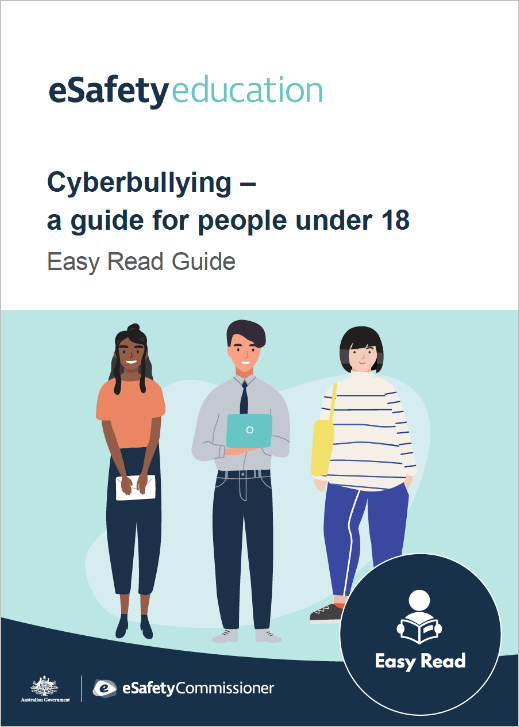
Adult cyber abuse booklet and poster for people 18 and older
This poster and booklet describe adult cyber abuse and explain how to deal with it and report it. Adult cyber abuse is when someone does bad things online to another person who is 18 years or older.
Click on the links to download and print copies.
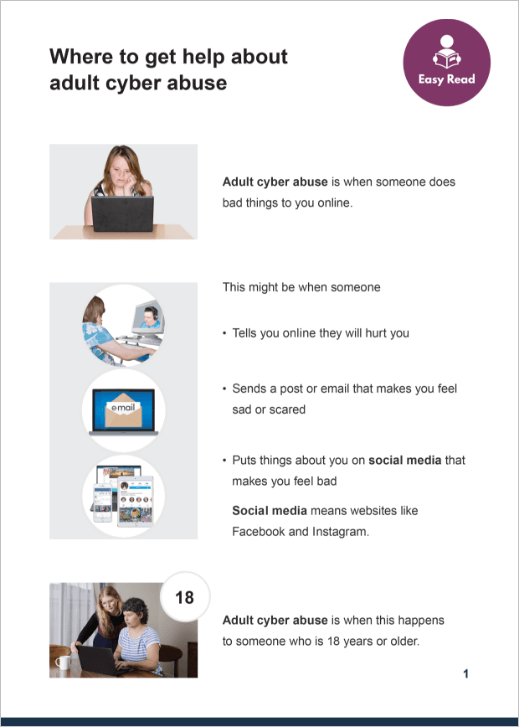
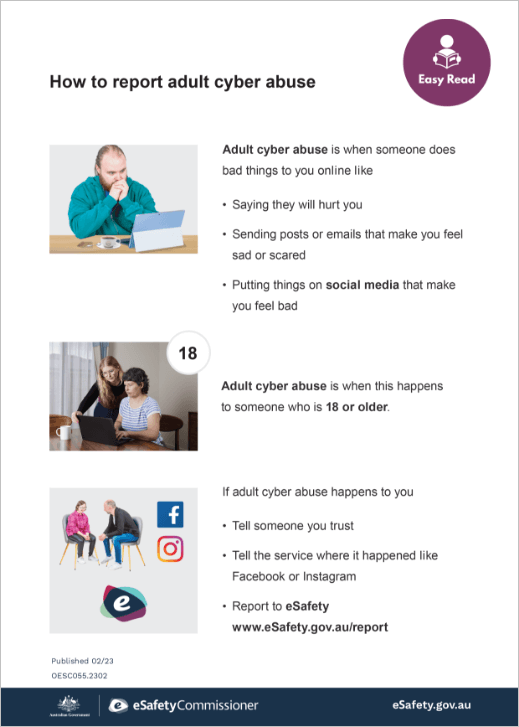
Image-based abuse booklet and poster
This booklet and poster explain the concept of image-based abuse and how to get help if it happens.
Image-based abuse is when someone shares an intimate image or video of you without your consent[https://www.esafety.gov.au/key-topics/staying-safe/consent].
An 'intimate' image or video might show:
- someone who is naked or partly naked
- a person doing something private (like using the toilet, having a shower or getting sexual
- a person without cultural or religious clothing they usually wear, like a hijab or turban.
Click on the links to download and print copies.

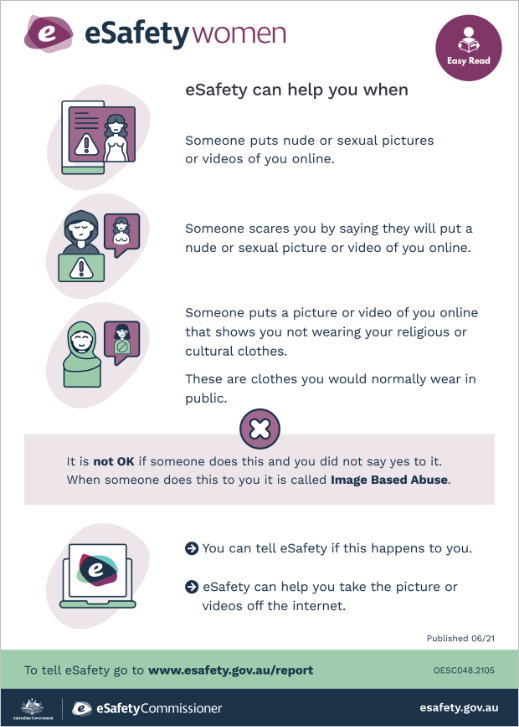
What you can do about abuse through technology
This booklet explains the concept of technology-facilitated abuse and how to get help if it happens.
Technology-facilitated abuse or 'tech-based abuse' includes when someone uses technology to stalk, harass or monitor you within a close relationship.
Click on the links to download and print copies.
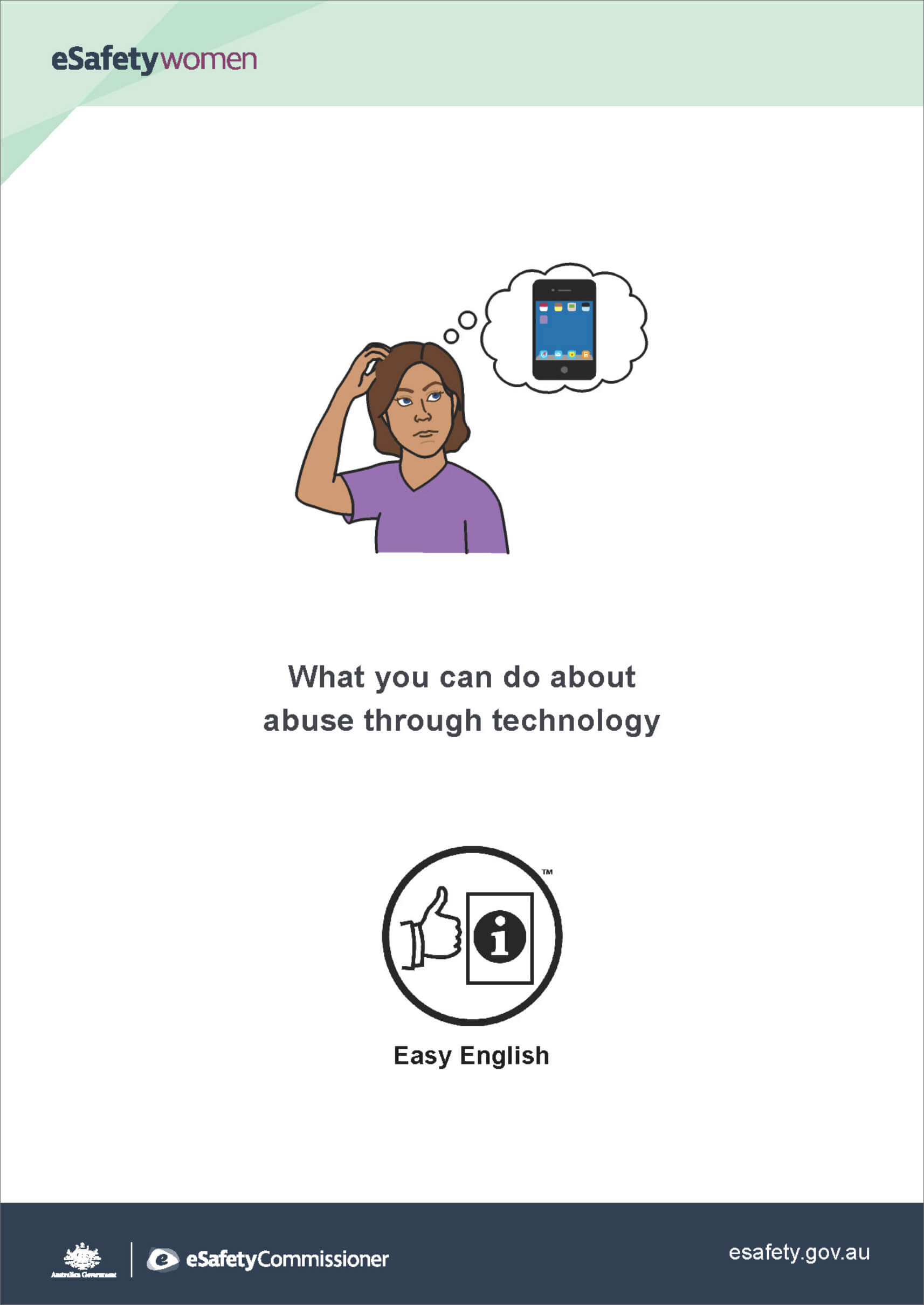
Research report summaries
Young people with disability using the internet
This booklet summarises the key findings of the research, which explores how young people with disability use the internet and how parents feel about their child with disability being online.
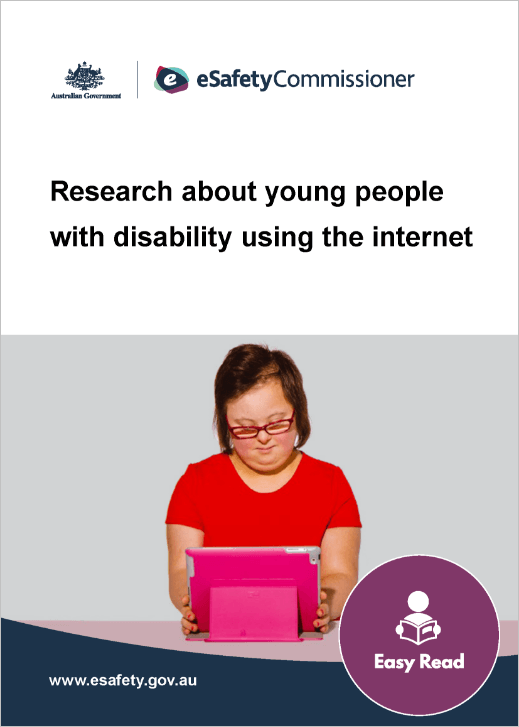
Technology abuse of women with intellectual disability
This booklet summarises the key findings of the research, which explores experiences of technology-facilitated abuse among women living with intellectual or cognitive disability.
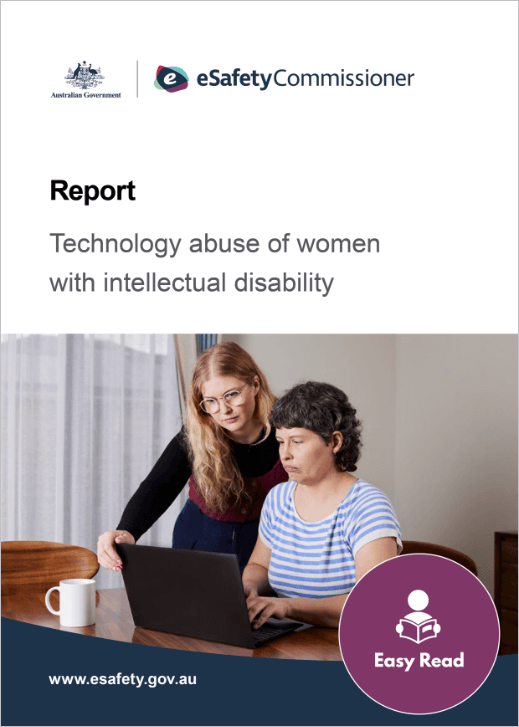
Evaluation of eSafety Women’s disability workforce and frontline worker program
This booklet summarises the key findings of the research, which was conducted to evaluate the impact of the program 12 months after its launch.

How adults with intellectual disability experience online abuse
This booklet summarises the key findings of the report, which explores how people with intellectual disability use the internet and how they deal with abuse. The fact sheet is also based on information in the report. It explains the concept of online abuse and how to get help if it happens.
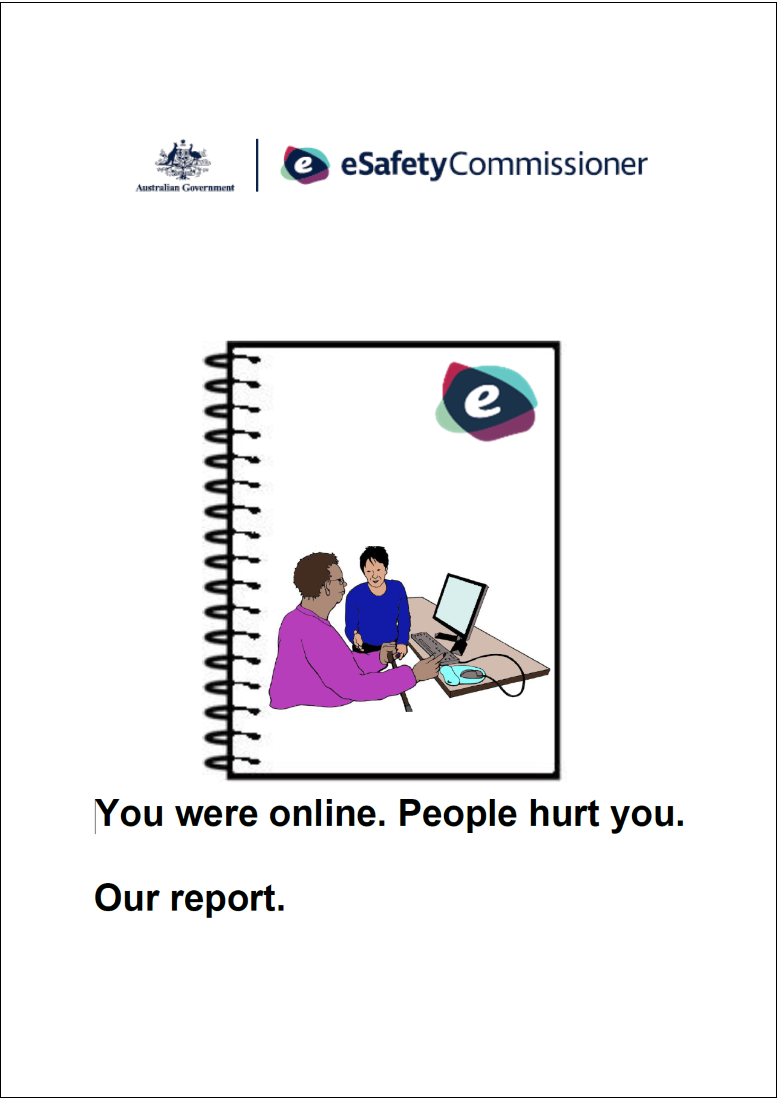

Last updated: 18/03/2025